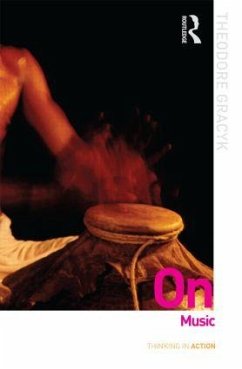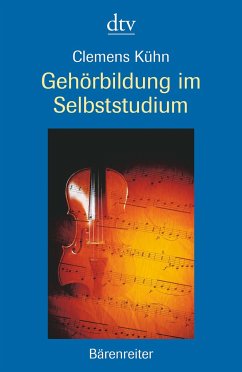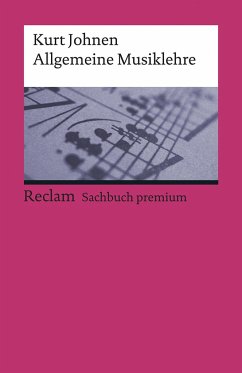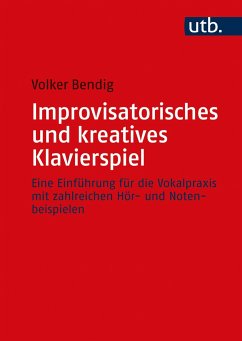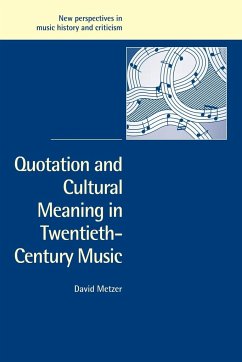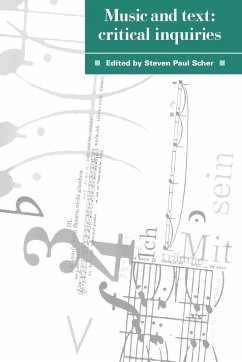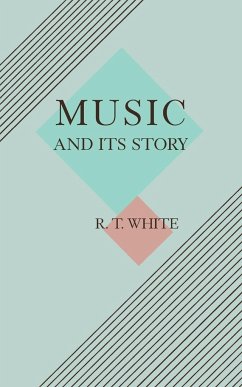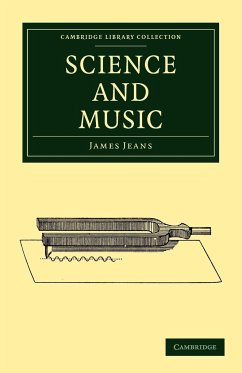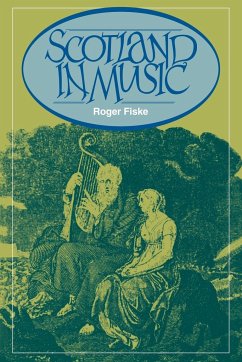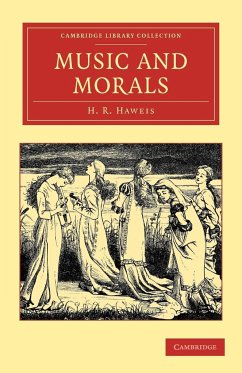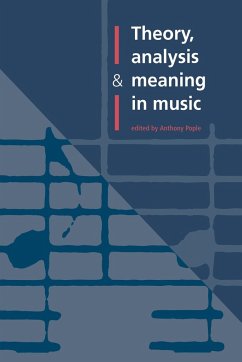
Theory, Analysis and Meaning in Music

PAYBACK Punkte
24 °P sammeln!
This book presents the work of a group of scholars who, without seeking to impose an explicit redefinition of either theory or analysis, explore the limits of both.There have been far-reaching changes in the way music theorists and analysts view the nature of their disciplines. Encounters with structuralist and post-structuralist critical theory, and with linguistics and cognitive sciences, have brought the theory and analysis of music into the orbit of important developments in intellectual history. This book presents the work of a group of scholars who, without seeking to impose an explicit ...
This book presents the work of a group of scholars who, without seeking to impose an explicit redefinition of either theory or analysis, explore the limits of both.
There have been far-reaching changes in the way music theorists and analysts view the nature of their disciplines. Encounters with structuralist and post-structuralist critical theory, and with linguistics and cognitive sciences, have brought the theory and analysis of music into the orbit of important developments in intellectual history. This book presents the work of a group of scholars who, without seeking to impose an explicit redefinition of either theory or analysis, explore the limits of both in this context. Essays on the languages of analysis and theory, and on practical issues such as decidability, ambiguity and metaphor, combine with studies of works by Debussy, Schoenberg, Birtwistle and Boulez, together making a major contribution to an important debate in the growth of musicology.
Table of contents:
Preface; Acknowledgements; Contributors; Part I. Languages: 1. Metaphor in Roger Scruton's aesthetics of music Naomi Cumming; 2. Competing myths: the American abandonment of Schenker's organicism Robert Snarrenberg; 3. Rehabilitating the incorrigible Marion A. Guck; Part II. Decisions: 4. Criteria of correctness in music theory and analysis Jonathan Dunsby; 5. Ambiguity in tonal music: a preliminary study Kofi Agawu; 6. Systems and strategies: functions and limits of analysis Anthony Pople; Part III. Texts: 7. Debussy's significant connections: metaphor and metonymy in analytical method Craig Ayrey; 8. Music as text: Mahler, Schumann and issues in analysis Robert Samuels; 9. The obbligato recitative: narrative and Schoenberg's Five Orchestral Pieces, Op. 16 Alan Street; 10. Music theory and the challenge of modern music: Birtwistle's Refrains and Choruses Jonathan Cross; 11. Répons: phantasmagoria or the articulation of space? Alastair Williams; Bibliography; Index.
There have been far-reaching changes in the way music theorists and analysts view the nature of their disciplines. Encounters with structuralist and post-structuralist critical theory, and with linguistics and cognitive sciences, have brought the theory and analysis of music into the orbit of important developments in intellectual history. This book presents the work of a group of scholars who, without seeking to impose an explicit redefinition of either theory or analysis, explore the limits of both in this context. Essays on the languages of analysis and theory, and on practical issues such as decidability, ambiguity and metaphor, combine with studies of works by Debussy, Schoenberg, Birtwistle and Boulez, together making a major contribution to an important debate in the growth of musicology.
Table of contents:
Preface; Acknowledgements; Contributors; Part I. Languages: 1. Metaphor in Roger Scruton's aesthetics of music Naomi Cumming; 2. Competing myths: the American abandonment of Schenker's organicism Robert Snarrenberg; 3. Rehabilitating the incorrigible Marion A. Guck; Part II. Decisions: 4. Criteria of correctness in music theory and analysis Jonathan Dunsby; 5. Ambiguity in tonal music: a preliminary study Kofi Agawu; 6. Systems and strategies: functions and limits of analysis Anthony Pople; Part III. Texts: 7. Debussy's significant connections: metaphor and metonymy in analytical method Craig Ayrey; 8. Music as text: Mahler, Schumann and issues in analysis Robert Samuels; 9. The obbligato recitative: narrative and Schoenberg's Five Orchestral Pieces, Op. 16 Alan Street; 10. Music theory and the challenge of modern music: Birtwistle's Refrains and Choruses Jonathan Cross; 11. Répons: phantasmagoria or the articulation of space? Alastair Williams; Bibliography; Index.





